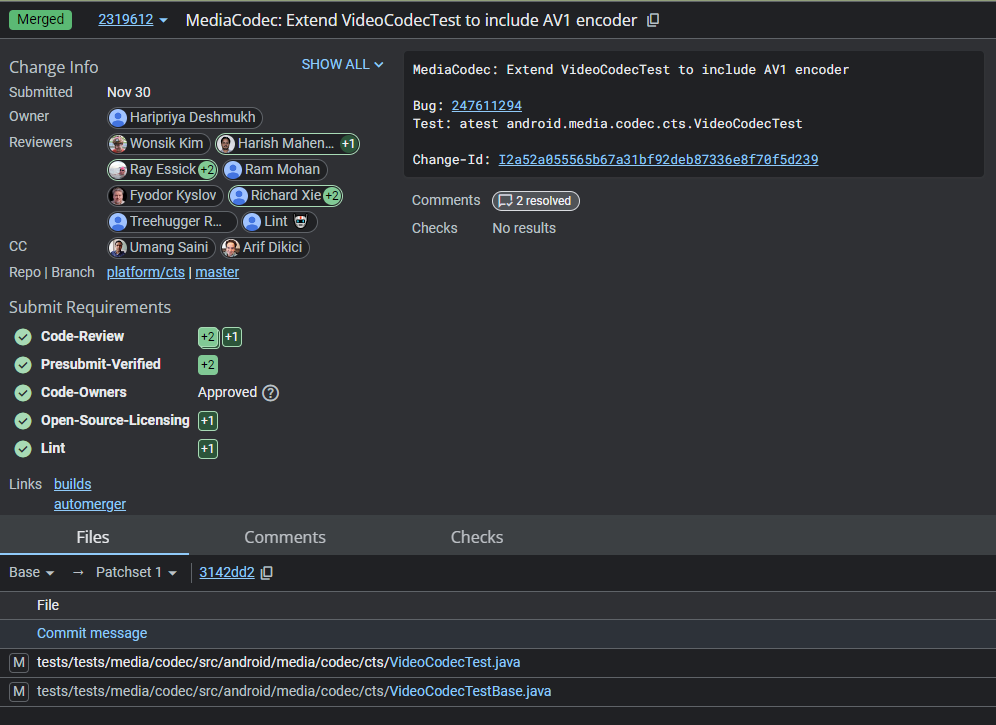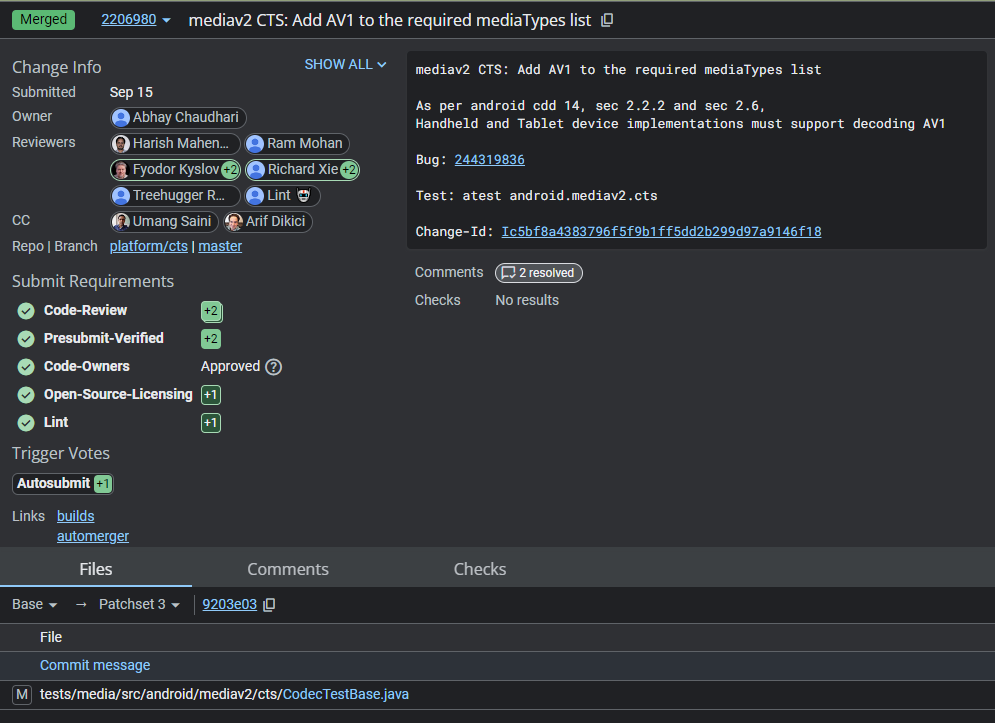AV1 is a codec developed by the Alliance for Open Media, and it's a royalty-free codec with immense bandwidth savings over both VP9 and H264. Facebook Engineering conducted tests in 2018, concluding that the AV1 reference encoder achieved 34%, 46.2%, and 50.3% higher data compression than libvpx-vp9, x264 High profile, and x264 Main profile, respectively. This is a massive improvement for people who may rely on slower connections, or if you're a company that runs a major video service like YouTube, that can translate into major cost savings. That's why the fact that Android 14 may require AV1 decoding support for devices isn't much of a surprise.
Proof of AV1 being mandated in devices launching with Android 14 comes via a pair of commits on the AOSP Gerrit. The first commit, which we spotted, adds AV1 encoding to the VideoCodecTest in the Android Compatibility Test Suite, or CTS. CTS is an automated set of tests that verifies compatibility with an Android OS version. If a device fails to meet the requirements outlined in the Android Compatibility Definition Document (CDD), then it may fail Google's CTS — which in turn may result in a loss of access to Google's suite of applications.
Alongside that, a second commit spotted by Esper adds AV1 to the list of codecs that a device must be able to decode to pass. What's particularly interesting about this commit is that it directly makes reference to the unreleased CDD for Android 14, a document that Google hasn't published yet and won't until shortly before the release of Android 14.
As per android cdd 14, sec 2.2.2 and sec 2.6,
Handheld and Tablet device implementations must support decoding AV1
There are still plenty of flagship smartphones that don't support AV1 decoding yet, such as any device with the Snapdragon 8 Gen 1. Funnily enough, the Exynos variant of the Samsung Galaxy S22 can decode AV1 but the Snapdragon variant can't, and it would be odd for Google to preclude OEMs from updating their devices to Android 14 based on AV1 compatibility, especially as the most recent generation of readily-available flagship chips did not support AV1 aside from less ubiquitous options such as the likes of MediaTek and Exynos.
There are two possible takeaways regarding what all of this means, assuming that Google is definitely pushing ahead with making AV1 decoding and encoding mandatory in some way. It will either be the case that only devices launching with Android 14 will be required to support AV1 (which makes sense, as Qualcomm, a long-time hold-out of AV1, even supports it with the Snapdragon 8 Gen 2) or alternatively, devices can decode and encode via software. As Esper explains, the decoding test only checks for whether the device can decode a single frame of AV1 video and not whether it's using a hardware or software decoder.
No matter what though, this sets the stage for AV1 streaming to become widespread across mobile devices. As smartphones support the codec more and more, streaming platforms will be able to confidently implement it to not only save costs in bandwidth on their end but to help users who may have limited data connections as well. We've reached out to Google for comment and will update this article if we hear back, and we'll be watching and waiting to see how this development shapes up.



